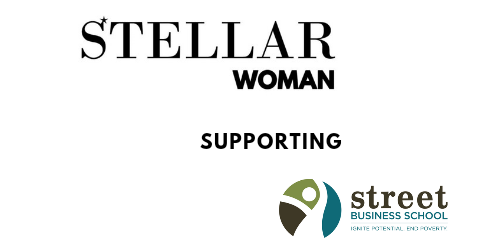Tina B is a vocalist and songwriter whose voice and songs have been featured on gold and platinum records. Her music has helped create a musical movement that defines music today. The 1980s brought an explosion of new music coming out of New York City – dance, electronic, funk, hip-hop. Tina B’s singles “Honey To A Bee”, “Bodyguard” and “January, February” contributed to the legacy and sound as fresh today as the day they were released.
The “Bodyguard” video was written and directed by Beastie Boy, Adam Yauch. She made her first debut with Afrika Bambaataa and the Jazzy Five on “Jazzy Sensation, Manhattan Version” on Tommy Boy Records in 1981. Following her debut with “Jazzy Sensation,” Tina B joined Rockers Revenge in 1982, a funk and soul group founded by pioneering dance, pop, and electronic producer Arthur Baker. The group had a smash UK and US hit with their remake of Eddy Grant’s “Walking on Sunshine”.
Her versatile voice has provided supporting vocals for artists like Madonna, New Order, Al Green, Freeze, U2, Carly Simon, Bruce Springsteen, and also doubled as a member of Van Zandt’s Disciples of Soul band and the supergroup “Artists United Against Apartheid”. She enjoyed working with some of the most influential writers and producers in pop history. Her singles have been added to dozens of compilation albums, are featured in iconic 80s films like Something Wild, Goonies, and Beat Street and are still played on radio stations all over the world.
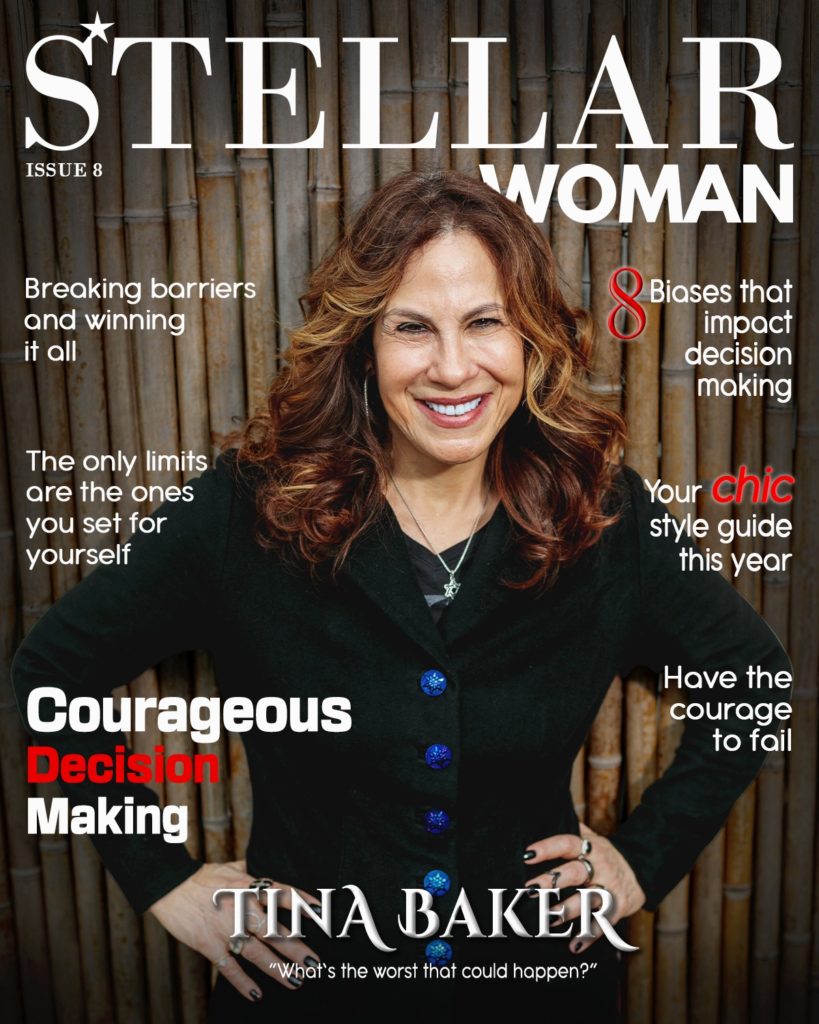
As a songwriter, she has penned and performed on songs for such artists as New Edition, Jeff Beck, Ian Hunter, Jennifer Holliday, and Tevin Campbell. Her song, “Not Like Kissing You” as covered by the West End Girls, went to number one on the Canadian pop chart.
Currently, Tina B is excited for the 2021 remake of “Jazzy Sensation” released on London based label Midnight Riot. In addition to creating new music for herself, Tina continues to work with Arthur Baker having recently been featured on bis track “BT’s Happiness” and adding supporting vocals to his remix of New Order’s “Be a Rebel”. She is excited to be back with the recently reunited Rockers Revenge and to get back on stage.
Tina Baker is also a lawyer qualified in both England and Wales and USA and businesswoman with 30 years of experience representing venture capital funds and emerging technology companies on International financing, exits and commercial transactions as well as IPOs. She co-founded JAG Shaw Baker in 2013 a law firm representing venture capital funds and emerging companies on international finances, exits and commercial transactions which later merged with Withers Tech in 2018. Tina was a partner in the technology team until 2019 and today is a consultant at the same law firm.
For this cover story, Tina B tells Stellar Woman Magazine why it is important to make tough decisions.
Who is Tina Baker?
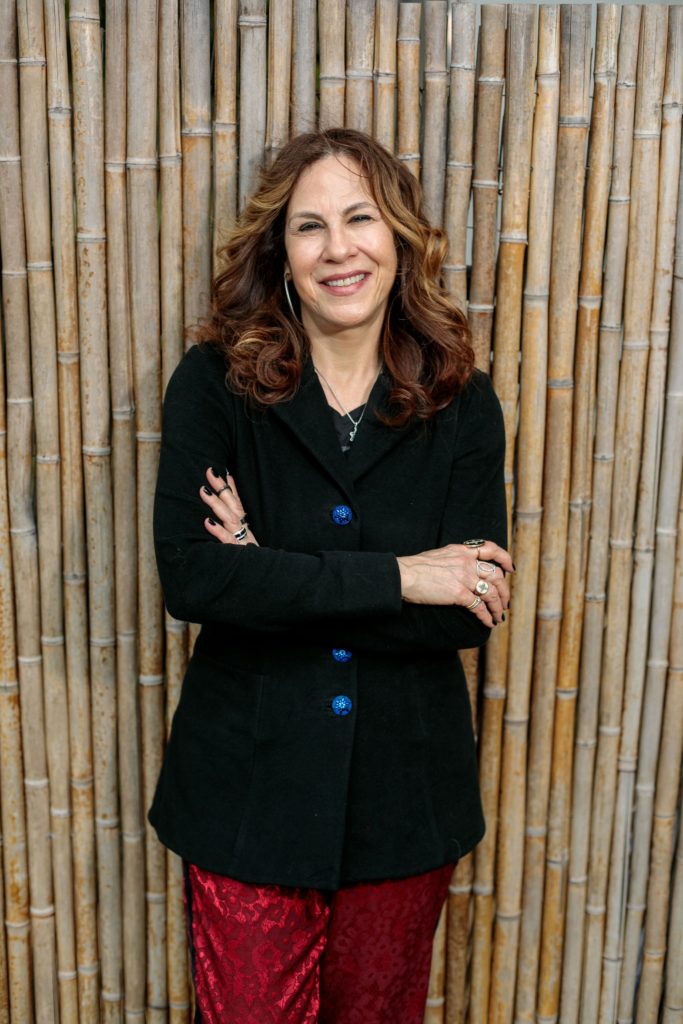
I’m a person who is an American. I’ve lived in the UK for 20 years. I’m back in the US now. I started my life in Brooklyn, New York, and grew up there, which I think is one of the best places in the world to grow up, although I wouldn’t want to live there now. But I spent most of my childhood involved in music. It was why I feel really fortunate to have grown up and exposed to what was actually a revolution in music. I believe the Beatles, the Rolling Stones, all of the rock and roll legends are my heroes. I was always involved in theatre but I ended up going to college at a place in Massachusetts called Hampshire College, which has some stellar alumni. Lupita Nyong’o, who is that wonderful, actress, is an alumni, and Ken Burns, who was a very good friend of mine, and I’m still in touch with the amazing documentarian and Robert Epstein.
Hampshire was a place where the motto for Hampshire was to knowledge is not enough – it’s an entrepreneurial type of place. So even though I spent a lot of time at Hampshire working on music, I also got very involved in the politics there and I ran for and was elected as student trustee, which I served in a two year term and there was a lot of turmoil there. I was a financial aid student and a lot of my friends were financial aid students. I always laugh, you can always tell the financial aid students they’re very well dressed and the rest of the students are wearing ripped up clothes because they don’t want people to know they’re rich or they don’t want to advertise it. During that whole process, I had a friend who said to me that I should make a really good lawyer. I should go to law school.
I ended up marrying that person. I think that a lot of times I’d never wanted to be a lawyer, I just always wanted to be a singer and an actress. But I’d had some issues with it, even though it was always my passion, I felt emotionally held back. I had a very traumatic childhood. There was a lot of abuse, neglect, trauma, which was very typical of those times when I was growing up. I think one of the things that is really interesting, if you look generationally, my parents did the best they could, but they never would have thought about going into therapy as adults, even though they might have been unhappy. Whereas now it’s pretty typical for people to seek ways to make themselves more happy other than just making money, because we all know money doesn’t lead to happiness at all.
There’s a certain threshold. If you’re below that threshold, it can make you unhappy. But having loads of money doesn’t never make you happy. But also they would not think to have their children engaged in any kind of therapeutic activities, which is now very common. I’ve been struggling with lifelong issues of self worth, self esteem. It held me back as a performer and so I was having issues with that. In college especially, I was in a band, they threw me out. It was all just like partially because I smoked too many cigarettes, which for a singer is just ridiculous.
But I had an addictive behaviour problem, which I still do, which is something we can talk about as we go on. But I lived in a household with five adults, four of whom were smoking, and my mother was smoking when she was pregnant with me. So I think I was probably born addicted to nicotine. Any so I said hey, I’ll consider law school so I went to law school. Before that, I worked in politics in Boston for a year, absolutely hated it, somehow got involved with a thing that was run by the Republican Party and it just was not good.
So I went to law school, got married to this person from Hampshire College called Arthur Baker, hence the Baker. And we ended up moving to New York after law school, which is where I’m from, because Arthur wanted to be a record producer. And I told him, you need to be in New York, and he wanted to stay in Boston, which is where he was from. But I said, Big fish, small pond, you can’t do this. And so we moved to New York and he became incredibly successful. So while that was happening, he had me singing with him. We wrote some songs. We were doing all of this stuff while I was a lawyer.
I recorded a single with Africa Bambata called Jazzy Sensation. And it was the first record on Tommy Boy records. And so that’s when I got named Tina B,
It is important to deal with conflict. When you’re in a position of deadlock in decision making. What do you do when we’re in a complex position?
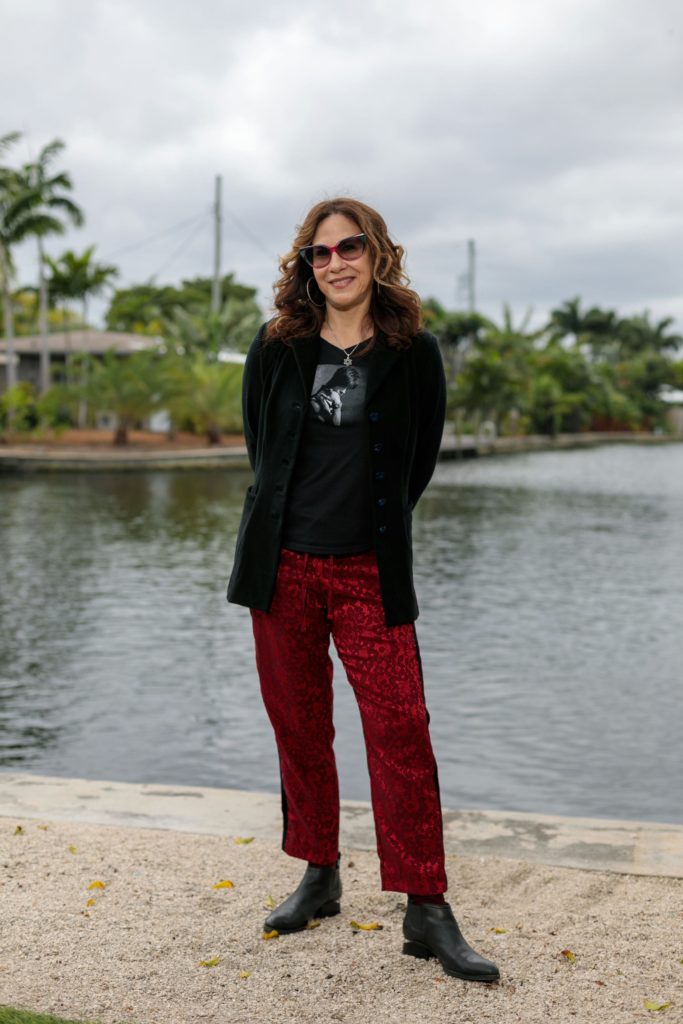
Well, I think for me, basically what I try to do is both for myself and the other person is talk about what do we really want and what are we afraid of? Because if someone thinks that you’re just trying to get a better deal because you’re just trying to get a better deal, forget it. Or you’re just saying no because you can. If you just sit down with them and you say, listen, therefore I want this. These are the reasons. It’s not some power struggle here. It’s interesting because I’ve seen this a lot in legal negotiations.
A lot of times people especially lawyers, they’re so bad at this. Sometimes they’ll just like to go back and forth, push back, push back yet they haven’t really reasoned out why. Why do I want this? Why do I not want that? Once you actually have a clear argument and show them that if we do that, it puts me in this position? And that’s really not tenable for me going forward. They are likely to go, okay. It may not work but for me it’s more about really getting to the heart of what’s causing the conflict and having both parties, or all the parties discussing what their fears and expectations are. To try to come to a better understanding of something that will make everyone feel better. As I said, it doesn’t always work, especially in small groups.
Are you able to share a courageous decision you have ever made? Starting Jack Shaw, Baker.
How did it start? Why did I start? Jack shaw baker. Okay, so I was at a law firm that you know, and I was miserable there. And they were very nasty to women, and they didn’t treat me well. And so with every relationship, once it’s over, like, something shuts down in you. So that by the time they offered me equity partnership, it was just too late. I couldn’t see myself being with that group of people. It just wasn’t.
So I went out there, and I started looking around for other jobs, and I had two offers from two other law firms to become an equity partner there in London, US firms. And then my former partner, James Shaw, who had been at the old firm I was at, he had started his own firm a few years earlier, and he was doing well, and he kept on calling me, come and join me. Come and join me. Come and join me. And I was scared. But what hit me was, what’s the worst thing that can happen now? How did I come to that thought? Very interesting, because this is really a very normal thought to have. Right. Except it wasn’t coming up in my brain.
How did it come up in my brain? And this is what I love about sort of the fortuitousness of life, or the randomness of life. I was reading a book by Tim Ferris called The Four Hour Work Week, which is a joke if you’re a lawyer, like, okay, I don’t know why I was reading it. Something drew me to that book, even though I knew there was no way in hell I could ever have a four hour work week if I was a Lawyer, but I wanted to read this book anyway. Okay.
I liked his approach. I start to read it, and he starts talking about quitting your job and starting something on your own and what’s the worst that can happen? And when I read that, I was in the middle of talking to James and also entertaining these other offers. And so that’s why I said, what’s the worst going to happen? I’ll get another job. Duh. Right? I’m pretty marketable. I’ve got tons of clients. What am I afraid of? And so we started. Jack Shaw Baker.
And for a while it was huge amount of fun. But unfortunately, as with all businesses, you reach a critical point in your growth where you have to either continue growing or downsize. And so that’s why we did the deal with Withers. But that’s a whole other conversation. That was a specific decision to start Jag Shaw Baker and to join with Withers was were specific decisions based on actually doing a business planning analysis. And we hired a consultant who helped us with that. We did our wish list. Seriously, we did the whole thing as if we were just a regular company. And it became apparent to us we either had to a downsize or grow.
How do you grow? You grow either organically, which we had done up to that point, but we realized we had 45 people at that point. We couldn’t continue to grow organically. We needed more cash. So how do you get more cash? You either borrow it, take equity, or you get acquired. And while we’re having this conversation, Withers calls us. So even though I do believe that we had decided to join Withers, it’s really interesting how most of the time, even when you sort of maybe it’s because that the universe brought them to us. Just like the universe brought the Jack Shaw Baker opportunity to me.

The universe brought me this producer who did not come through, but put me in London where X, Y and Z happened. Right. I’m not a huge believer that I have any control over my life. I don’t believe I have any control over my life. That’s good. Yeah. Even though we all and I’m still guilty of this, I still try to do all these things to try to take control and make everything safe. And I think that comes from my trauma background more than anything. But on some level, making decisions is not really a conscious process because there’s all these other forces going on. As you’re thinking about the strategic approach and the law firm, how the offer comes to you, because, yeah, you could say, okay, we’re going to do this, and then you go out and you try to find it and you don’t find it. Yes. Like, how many times does that happen?
What is your leadership style?
I lead by example. If I were expecting people to work late in the office, I would be there. I try really hard to train people in my style. I am always available in case anyone needs help or has any questions.
What is the most difficult cooperate decision you have ever made?
Merging with Withers because I knew it was going to be difficult and it wasn’t going to be as much fun. But it felt like we had no choice.
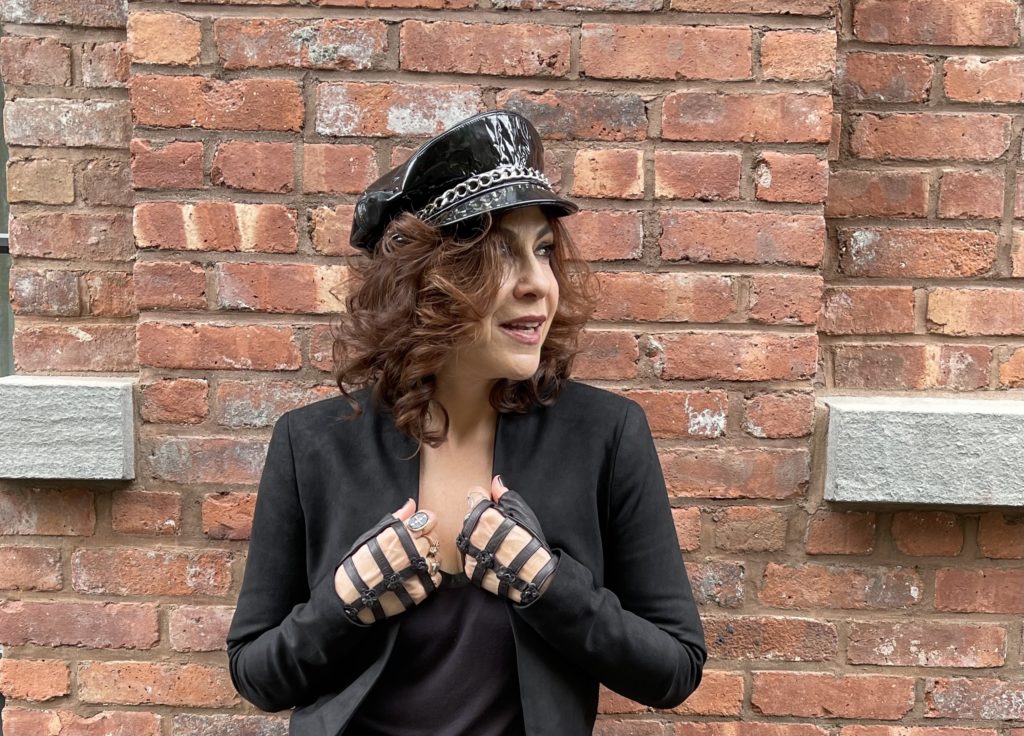
Do you regret making this decision?
No, I don’t.
Are there any key lessons you would like to give women opening up startups?
You have to know more than everybody. Whatever industry it is, you have to know the ins and outs. Investors tend to be drawn to strong and articulate women.
Where do we see Tina in the next five to ten years? Oh, God, I have no idea. But as I said, I’ve been working on putting together this rock and roll band, so who knows? Yeah, rock might get back out on the road. Who knows? And there’s a little spit for the magic. Always. And I’m writing music with some other people. One song allegedly has been accepted into a film. I’m singing it and I wrote it, and the film has been submitted to Sundance. I don’t know if it’s going to get accepted. I’ll find out more about that so I may have some more opportunities for film music. I’m also working with a couple of different companies, trying to help them get off the ground.
Have you failed at anything before?
Turns of times.
How do you define success?
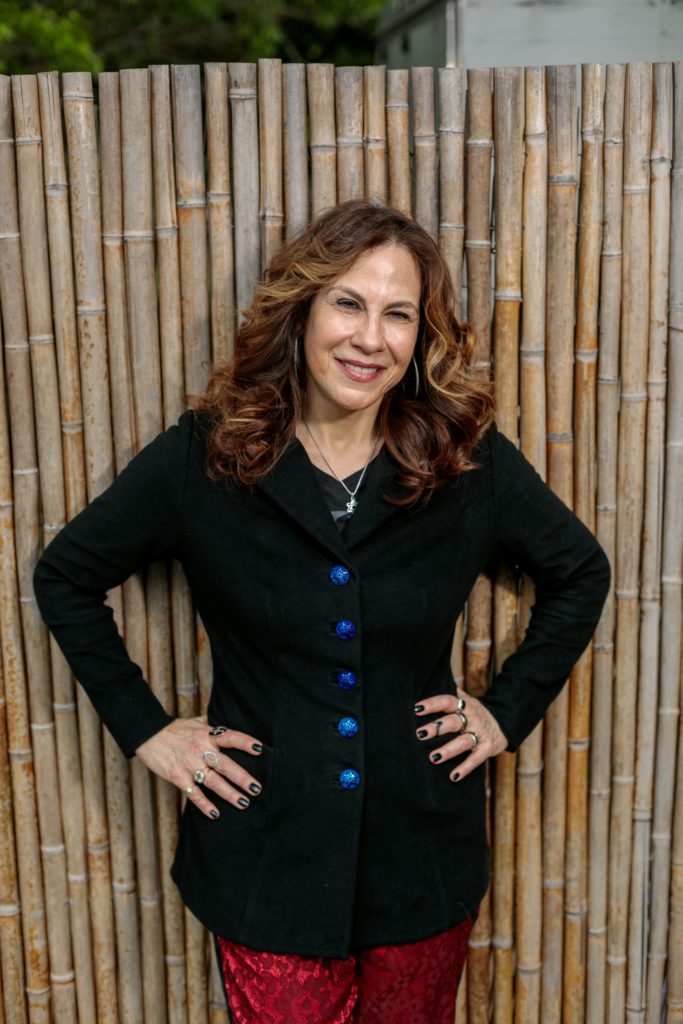
So for me, success is being happy. That’s really what it is. And that’s what I’ve been devoting my life to. I have to say, especially if you’ve come from trauma. And I would have hoped by now that I have would have gotten out of these loops that I’ve been in for most of my life. But. I’m very aware of them, and I’m doing much better at not trying to drown it out, because that’s where you make no progress. That’s called addiction. And you just go into some other kind of numbing behaviour so you don’t feel the pain of the past or your inability to cope with what’s happening right now, which is actually, I think, the entire planet, both humans and others, and trees are in a state of pain right now.
What future do you envision for women?
Well, we need to take over the world. I don’t know how we’re going to do that, but who was it that said that men haven’t been doing such a good job. Women need to be running this world. But this is not a new thought. Obviously, it’s been going around. I think that we need to lead this.
What is your life mantra?
It’s from Socrates, Unexamined life is not worth living.
Click below to watch the full interview
